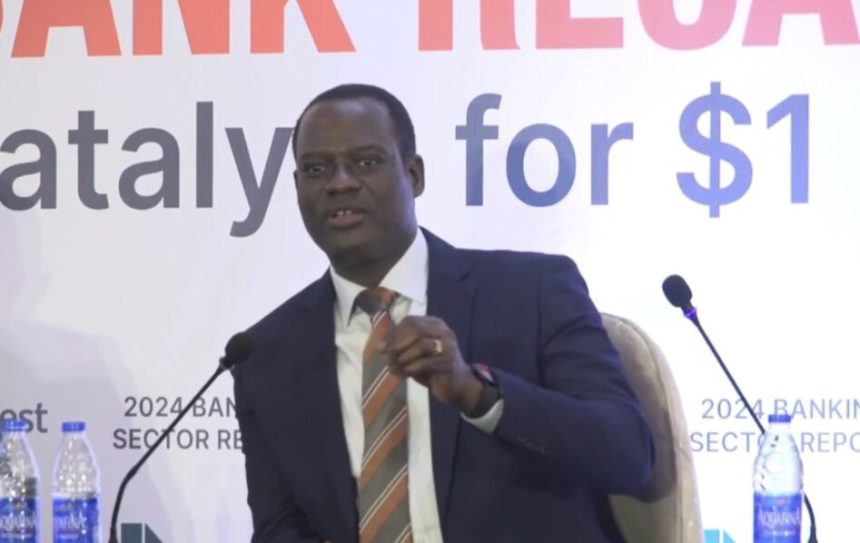In a fiery session marked by sharp exchanges and deep divisions, the House of Representatives moved Nigeria’s Tax Reform Bills forward despite mounting concerns over their impact on key government agencies.
The intense three-hour debate laid bare the stark disagreements among lawmakers, who wrestled over the potential consequences of phasing out critical institutions and the constitutionality of certain provisions.
The legislative push, led by Speaker Tajudeen Abbas, saw the passage of four pivotal bills: the Nigeria Tax Bill 2024, the Tax Administration Bill, the Nigeria Revenue Service Establishment Bill, and the Joint Revenue Board Establishment Bill. While proponents argued that these reforms would modernize Nigeria’s tax system and enhance revenue collection, dissenting voices raised alarms about their broader implications.

At the heart of the controversy were provisions that could significantly alter the funding and operational structures of major institutions such as the Tertiary Education Trust Fund (TETFUND), the National Agency for Science and Engineering Infrastructure (NASENI), and the National Information Technology Development Agency (NITDA). The fear among critics is that the proposed laws might weaken these agencies, potentially disrupting vital services they provide.
House Leader Prof. Julius Ihonvbere defended the bills, emphasizing their necessity in overhauling Nigeria’s outdated tax framework. He credited the Nigerian Governors’ Forum for its input, particularly in adjusting the Value Added Tax (VAT) sharing formula to address earlier concerns. However, despite these assurances, opposition from within the House remained strong.
One of the most vocal critics, Abubakar Fulata of Jigawa State, took issue with the absence of interpretation clauses in most of the bills. He warned that this could lead to misinterpretations and legal loopholes. Fulata also strongly opposed the plan to phase out TETFUND, calling it indispensable to Nigeria’s education sector.
A major point of contention arose around the National Tax Bill’s Development Levy, which would redistribute funding allocations for various agencies. Under the proposed structure, TETFUND’s funding would steadily decline, with its share ultimately being eliminated by 2030. Fulata argued that this move could cripple educational development in Nigeria and called for a reassessment of the provisions.
Further resistance came from Ahmed Jaha, representing Chibok, Damboa, and Gwoza. He criticized the executive’s decision to push the bill forward despite objections from the National Economic Council and governors, particularly from the North. Jaha also took issue with the proposed dual role for Dr. Zach Adedeji as both the Chief Executive Officer and Chairman of the Nigerian Revenue Service, warning that such a concentration of power could lead to conflicts of interest.

Religious and constitutional concerns also emerged in the debate. Jaha vehemently opposed the proposed inheritance tax, arguing that it contradicts Islamic law and other religious principles. He emphasized that under Islamic teachings, inheritance must be distributed strictly among rightful heirs without external interference, making the proposed tax a violation of religious rights.
Despite these fierce objections, supporters of the reform, including Bamidele Salam of Osun, defended the bills, highlighting their potential to decentralize wealth distribution and drive economic growth. He pointed out inefficiencies in the current tax system, arguing that the reforms would eliminate redundancies and encourage investment.
Miriam Odinaka Onuoha added that while taxation is necessary, it must be structured to ensure that wealthier individuals contribute more while safeguarding lower-income citizens. She praised the bill’s employment relief provision, which offers tax exemptions to companies hiring workers earning N100,000 or less, seeing it as a critical step toward job creation.
The debate also touched on Nigeria’s broader economic competitiveness. Kuye Ademorin of Lagos argued that the reforms were long overdue, urging lawmakers to focus on the big picture rather than getting entangled in specific provisions at this stage.
Meanwhile, in a related move, the Senate made amendments to bills concerning regional development commissions and the National Youth Service Corps (NYSC) Trust Fund. Senate President Godswill Akpabio clarified that these revisions were necessary to align the bills’ funding mechanisms with the constitutional provisions governing public finance. This was seen as a preemptive step to avoid legal challenges that could stall their implementation.
With the battle lines drawn, the road ahead for Nigeria’s tax reforms remains uncertain. While proponents see these bills as a game-changer for economic revitalization, opponents warn of potential disruptions to critical sectors and constitutional overreach. As the legislative process continues, all eyes will be on how these reforms evolve and whether lawmakers can strike a balance between revenue generation and safeguarding public institutions.



